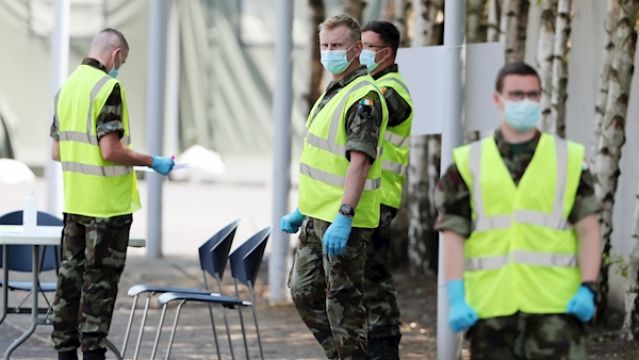Niall Conroy says that the most important thing to do is to implement population level restrictions.
Speaking to , Mr Conroy said: “What we know about outbreaks from decades of managing them is that there is a real consensus among public health people that you do not use contact tracing at massive levels.
“If you look at Ireland, you have eight regional public health units and you have four of five doctors in each of those units, so around 45 overall doing outbreak control.
“If you get the guts of 1,000 cases a day, it is impossible for those doctors and their teams to control those number of cases.”
Conroy said the reality is that there has never been a public health team or system that can keep up with 800 or 900 cases a day, "it is just a physical impossibility."
In watching the Irish covid commentary in last 24 hours there are some recurring teams, to which I’d like to offer some counter-opinions: - The Covid PCR test is fine. It’s not perfect and it’s not suitable as a screening test. But it’s v good and it works well in practice....
Advertisement— Niall Conroy (@NICU_doc_salone) October 11, 2020
Queensland response
As the public health consultant for the region of Queensland, Conroy has been at the forefront of the states response to Covid-19.
“Queensland has essentially eliminated the virus using some quite restrictive measures and some that people might find controversial.
“The centre piece to the Queensland response has been border control. We very quickly realized that with a pandemic respiratory virus, the potential for spread is so high that the only way we were going to get rid of community transmission, was to stop it coming into the country in the first place," he said.
Their approach was to impose quarantine on arrival, so if you come into the state you have to stay in government provided hotel accommodation for 14 days. You are then tested at the beginning and at the end of your stay to see if you have the virus.
“The reason we do that is because If someone is coming into the country with Covid, we do not want them bringing it into the community. They can have Covid-19 in their hotel room because they are not a danger to the community.”
....that you can only shield elderly people up to a point when community transmission becomes super high. Ireland is at that point. There will be nursing home outbreaks, even with strict precautions....-“Test and trace” is a misnomer. It’s “investigation and control”. But....
Advertisement— Niall Conroy (@NICU_doc_salone) October 11, 2020
Judging by the data around Covid-19 in the state of Queensland, it is clear to see that this approach has worked. In total there have been 1,161 cases of the virus in the region and only six deaths to date.
In contrast to Ireland's response to the pandemic, he feels the Government does not trust public health officials:
“IIt does not resource or listen to the public health units. When I say we need to do something over here (Queensland) they are really supportive. In Ireland, my colleagues are beyond exhausted and frustrated. They do not feel they are being listened to or properly resourced."
With regards to the current tiered restrictions in Ireland, Conroy also said the messaging around them has been muddled.
“From a disease control perspective, the only way I can see in Ireland operating now is with recurring lockdowns. I do not see this as an end point but just lockdown after lockdown.”
“The problem with lockdowns as your end point is that they do not change anything. If you already have the virus within your country, you always going to get lots of new cases coming in.
“If you open up but there is still Covid-19 in the community, you are back to exactly where you were when the virus entered the country in small amounts."
Public health medicine
Mr Conroy said Ireland also has a major issue with retaining public health doctors, which makes things even worse. The problem is that when you finish your training in public health medicine in Ireland, you qualify as a specialist as a opposed to a consultant.
As he said, every other English-speaking country gives you a consultant contract in public health medicine as opposed to just a specialist one.
The difference comes down to the level of authority you have in your role. He said you do not feel you have the decision-making capacity in Ireland, so people tend to leave to work abroad.
Overall, Mr Conroy also said that despite what some studies say, the indicators show that there is not widespread asymptomatic transmission of the virus.
“Asymptomatic spreaders are not driving this epidemic. The most reliable studies suggest that around 20 per cent of cases are asymptomatic.”
He said the trend of the virus does not indicate mass asymptomatic spreading because they can mostly trace a positive case back to someone who is ill with the virus.
The only time that doctors do test asymptomatic people is when there has been an outbreak or a cluster of the virus.







